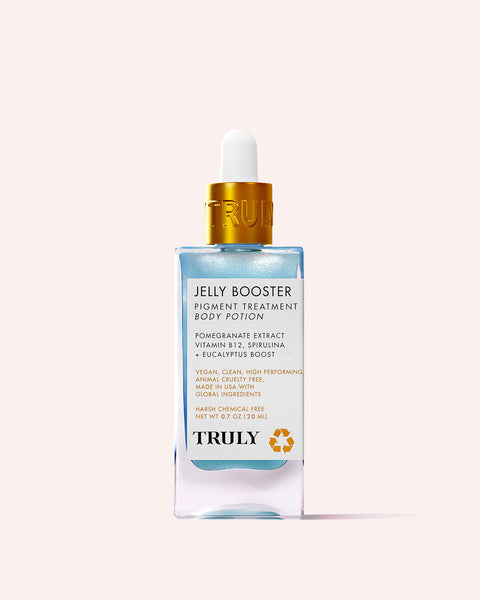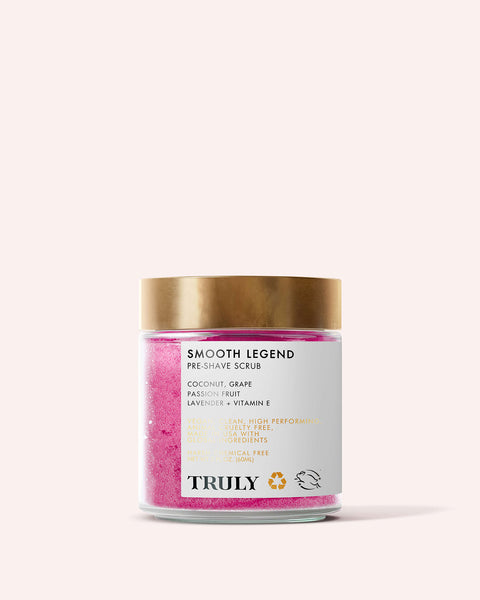How to Minimize Acne Scars

If you’ve ever tackled acne (unfortunately, most of us have!), then you may be left with one or several acne scars that you can’t seem to get rid of. Sound familiar? You don’t even have to pick your pimples to suffer the consequences of blemishes. Marks can still appear, even if you never once touched your zits. Worst of all, raised scars and pigmentation can last for months and even years. Luckily, there is a way back to smooth, scar-less skin.
Here, we discover how to get rid of acne scars as soon and as safely as possible.
WHAT EXACTLY ARE ACNE SCARS?
Acne scars come in various forms including boxcar, rolling, and ice-pick scars. According to board-certified dermatologist, Marisa Garshick, “Scars and discoloration occur as a result of injury to the skin, and in the case of acne, the injury is related to excess oil production, inflammation, and bacteria.” When the skin tries to repair itself, it often leaves a pink, red, or brown mark behind, depending on the person’s skin type and the type of breakout.
In some cases, acne scars can be treated with a solid skincare routine that includes a few scar-banishing ingredients. However, if your acne scars are severe, they may not respond to over-the-counter treatments. Instead, you may need to visit your dermatologist for an in-office treatment.
HOW TO REDUCE THE APPEARANCE OF ACNE SCARS
Opt for Scar-Banishing Ingredients
Vitamin C
There’s no better ingredient for brightening dark scars and hyperpigmentation than vitamin C. “Its benefits are endless, including revitalising and brightening the skin while stimulating your body’s natural production of collagen,” says dermatologist, Dr Dennis Gross. "Not only does it help to lighten and break-up pigmentation you might already have, but it also prevents dark spots or sun spots from forming in the future.”
Try Truly’s CBD Jelly Anti-Blemish Facial Cleanser. Formulated with vitamin C, CBD, and salicylic acid, it’ll keep your complexion fresh and clear, while brightening those dark patches.
Retinol
Another fabulous weapon against acne scars: the vitamin A derivative, retinol. Retinol helps control the hyperpigmentation leftover from scarring by increasing the cell turnover rates. As a result, it helps to lessen post-inflammatory hyperpigmentation. Even studies show that retinol can help reduce discoloration and make acne scars look less visible.
Stick on a retinol-infused Truly Super Star Patch to help remove blemishes and protect against scarring and hyperpigmentation.
Alpha Hydroxy Acids (AHAs)
Alpha hydroxy acids like lactic and glycolic acid help the skin to exfoliate and fade discoloration. By dissolving dead skin cells, AHAs help reveal brighter, clear, scar-free skin.
Exfoliate your face with Truly’s CBD Jelly Toning Solution, a blend of CBD, organic aloe, and glycolic acid to remove dirt, oil, and dead skin as well as even out the skin and fade discoloration.
Sunscreen
We know you’re probably sick of hearing this one, but sunscreen is a must if you want to protect your skin. Not only will it prevent premature aging, wearing sunscreen every day will also make darker scars less noticeable. Plus, it will prevent any hyperpigmentation from occurring in the first place.
Treatments that Fade Acne Scarring
Besides including some scar-erasing ingredients in your skincare routine, it’s also worth trying out in-office acne scar treatments – especially if you have severe scars. Let’s take a look at a few that are proven to work.
Microneedling
Microneedling is one of the best treatments for scarring. By creating small punctures in the skin, it forces the body to create new, healthy collagen which reforms the skin. There’s even evidence that shows how effective microneedling is at reducing the depth of acne scars. However, it may take up to 9 months to see a change in your skin. The earlier you do this the better, as it’s much harder to treat old scars.
Chemical peels
A chemical peel is a strong acid that helps remove the top layer of the skin to remove dead skin cells and reduce scars. If you have more severe scarring, it is best to have the treatment done by a professional. For less obvious scarring, at-home peels with a low-pH acid will also make a difference to your skin. Still, it’s worth discussing your options with your dermatologist to see which peel would work best for your skin.
Laser
Like chemical peels, laser resurfacing also works to remove the top layer of the skin. It’s not suitable for all skin types – particularly those with sensitive skin or active acne – but it can make a huge difference to those with acne scars.
Dermabrasion
Dermabrasion: a treatment that used the same principle as microdermabrasion, only with a wire brush or wheel to exfoliate the top layer of the skin. It’s actually one of the most common and effective treatments for facial scars – especially those close to the surface like rolling or boxcar scars. Still, even deeper scars will look far less noticeable with a few sessions of dermabrasion.
LED Light Therapy
In recent years, light therapy has become a popular treatment for a variety of skin concerns including acne, aging, and hyperpigmentation. Recent research shows that red LED may help lessen inflammation, boost cellular repair, and enable the skin to recover more effectively from a breakout.
Best of all, you don’t need to be confined to the four walls of your dermatologist’s office to reap the benefits of LED therapy. You can now buy advanced at-home LED face masks. Make sure you look out for the red-light function!
Without a doubt, acne scars are frustrating and we all want to get rid of them – fast! Fortunately, there are certain skincare ingredients and treatments that effectively target scarring and pigmentation. Give them a try for yourself and you’ll notice a significant difference in the appearance of your skin.
Meanwhile, practice healthy skin habits that prevent acne scars in the first place. Avoid picking and squeezing, wear sunscreen daily, and when a blemish does appear, stick on an acne patch. It’ll help banish the pimple and prevent scarring.
























































